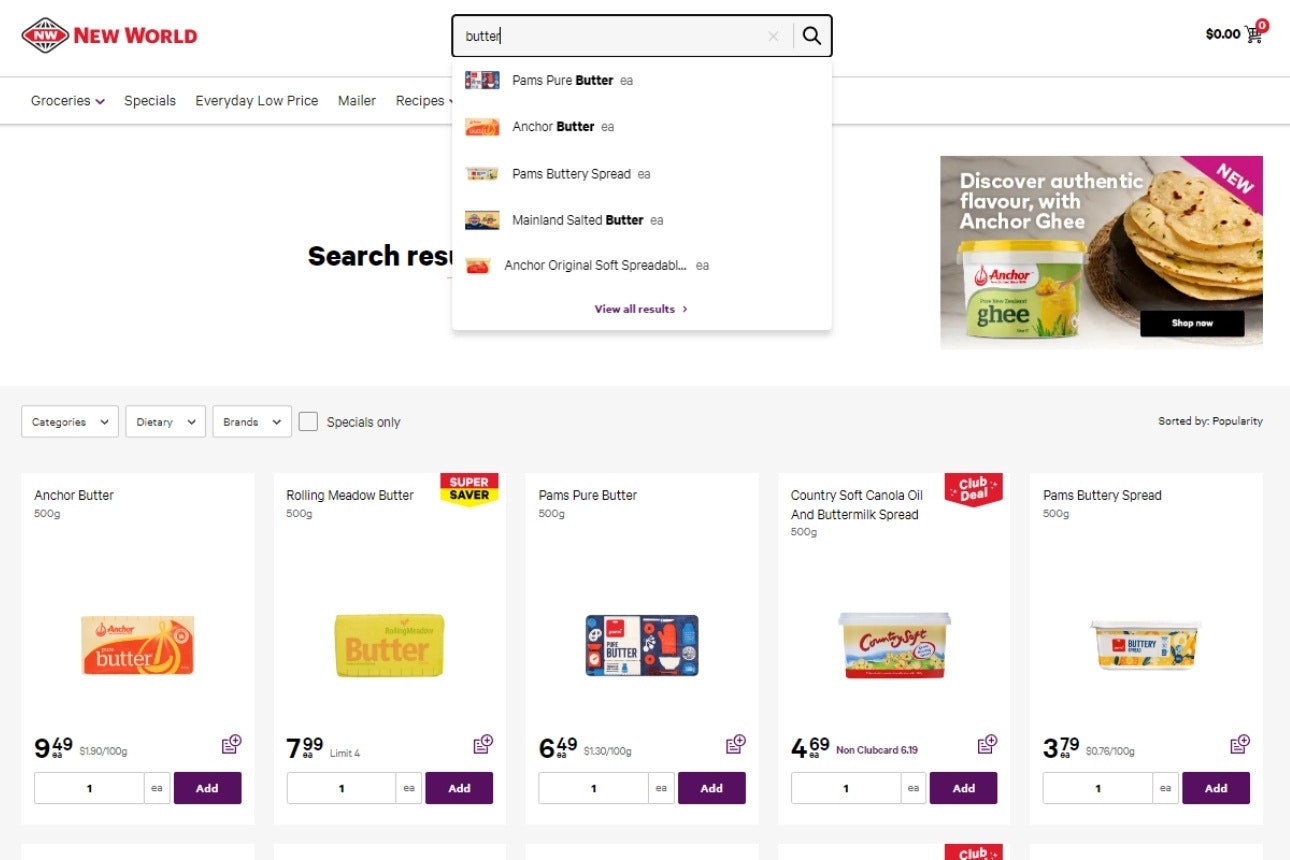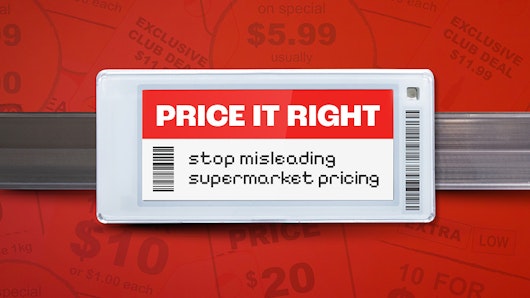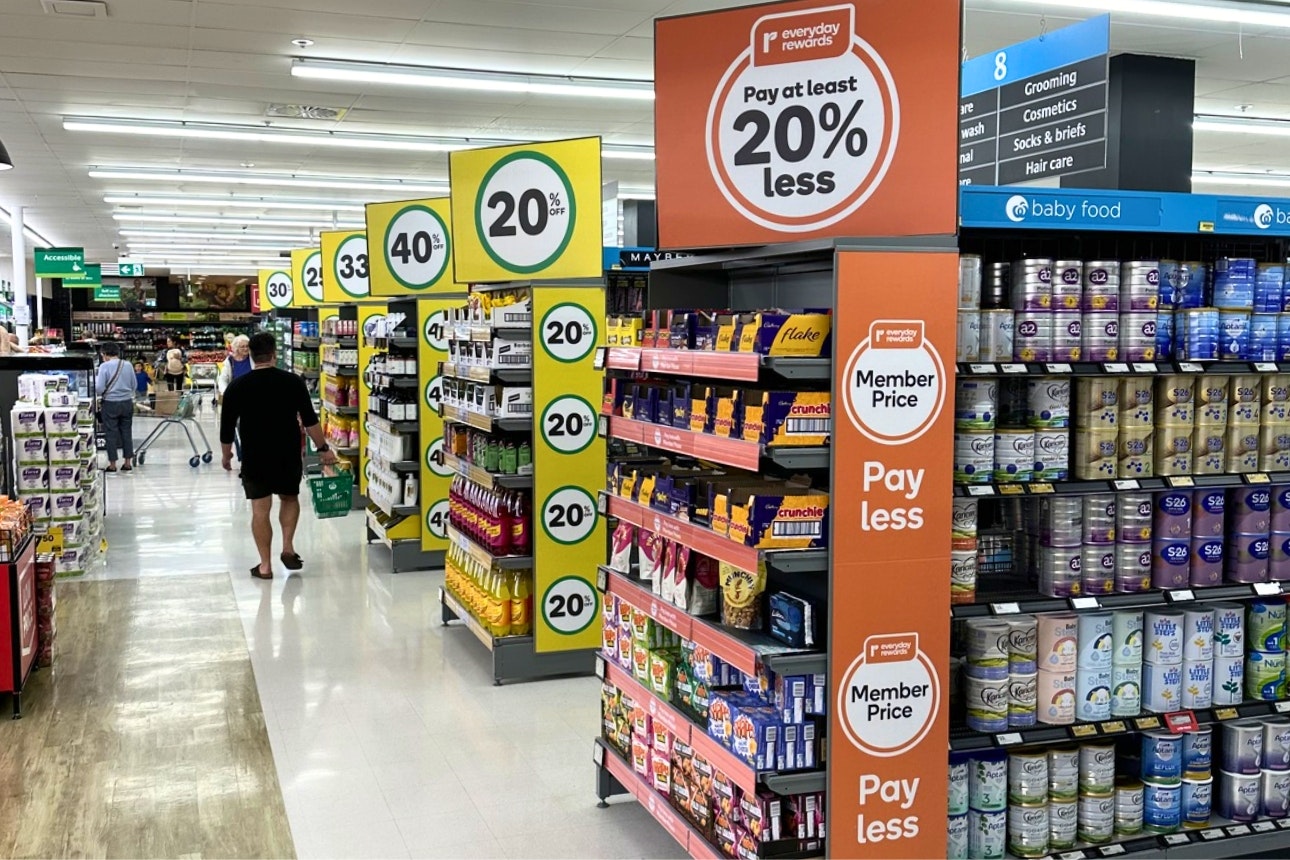
By Chris Schulz
Investigative Journalist | Kaipūrongo Whakatewhatewha
Whether it's clothes, shoes, appliances or food, anyone who shops online regularly knows there's one tool that's become ubiquitous: the ability to rank searched items by price.

Consumer spent an hour browsing local retail websites and couldn't find a single one that didn't give customers access to that tool.
From clothing stores Hallensteins, North Beach and Barkers, to shoe stores Number One Shoes, Sketchers and Platypus Shoes, to appliance stores Harvey Norman, Noel Leeming and JB Hi-Fi, to large-scale marketplaces Trade Me, Kmart and Farmers, the filter buttons marked “highest-to-lowest" and “lowest-to-highest" are easy to find and available for everyone to use.
So, it was a surprise to hear from a Consumer member that two of the websites they use most often – New World and Pak'nSave – had removed the ability for shoppers to be able to do this.
New World and Pak'nSave are owned by the same company, Foodstuffs, and rank among the country’s biggest retail websites. Yet, over the past few months, Foodstuffs has quietly removed the rank by price tool from both. It may not be back for quite some time. The question is, why?
What a Consumer member noticed
The message arrived through Facebook. It said: "I'd like to draw your attention to the fact that both Pak'nSave and New World have removed the option to sort products by price.
"If anything, they should have added the option to sort by unit price, but no, it now automatically sorts products by popularity, which makes it much harder for consumers to find the cheapest product."
Consumer wanted to find out if this was true, so we jumped online and tested the websites for both New World and Pak'nSave.
It's true! The ability to rank any searched item by price, whether that's coffee, milk, bread or meat, is no longer available through the website of either supermarket. (The function remains if you're shopping via the app.)
In a cost-of-living crisis, when the rising price of groceries has been at the forefront of everyone's minds, that's a disappointing and niggly change.
"This is not okay!" said our complainant.
Then something else caught our eye while we were browsing: the same brand name kept coming up in our searches again and again.
What our survey found
To check to see if the price-ranking function might magically reappear, Consumer plugged 10 different everyday items into the search engines on the websites for New World and Pak'nSave: butter, Colby cheese, tinned tomatoes, white sugar, flour, milk, spinach, almond milk, toilet paper and baked beans.
In almost every search, Pams products came up as the first result, both in the drop-down search function, and in the ranked search results. Pams products for butter, Colby cheese, tinned tomatoes, white sugar, flour, milk, spinach and almond milk all came first; for toilet paper, a Pams product was fourth; for baked beans, it was third.
Pams is the in-house brand owned by New World and Pak'nSave. In recent years, products by Pams have proliferated on the shelf, as have the equivalent in-house brands for supermarkets owned by Woolworths.
Consumer believes expanding in-house ranges at supermarkets lessens choices for consumers, hurts local suppliers and increases supermarket profit margins.

Foodstuffs responds: ‘We’re upgrading our digital platform’
Consumer approached Foodstuffs with concerns about its removal of the ability to rank searched items by price. We said we believed it was unfair to shoppers to remove a crucial online tool during a cost-of-living crisis.
A spokesperson responded: “We're upgrading our digital platform and improving our e-commerce offering with more transparent unit pricing. Soon, we'll add a new sort feature allowing customers to sort products by price or unit price.”
That’s a reference to new unit pricing rules. From August 2025, the websites for supermarkets must display unit pricing, making it easier for consumers to compare the price of products on what they cost per unit of measure.
The spokesperson says it removed the ability to rank items by prices on search pages for both websites at the end of May; for category pages, the changes were made for New World in late July, and for Pak'nSave in late August. When asked if they had a date the tool might return, the spokesperson said: "We don't have an exact date yet."
Consumer approached Woolworths – Foodstuffs’ biggest competitor – to see if it had any plans to remove its online search ranking function.
A spokesperson replied: “Woolworths New Zealand has no plans to remove the ‘sort by price’ feature. We know that our online customers use the sorting and filtering options to find the best value and we have recently made these options more prominent.”
Regarding our observations that its search function promotes its own products over those of other suppliers, the Foodstuffs spokesperson denied this.
“Our goal is to make finding products quick and convenient, whether customers are searching or browsing categories,” they said.
“Search results aren't biased toward Pams products – they’re based on regional sales data or customers’ inferred preferences. Occasionally, we may boost categories or pin products for promotions, but there are no specific rules for Pams. Logged-in users get personalised results, while logged-out users see region-based data.”
What Consumer says: ‘It’s bizarre’
Jessica Walker, Consumer NZ’s acting head of research and advocacy, calls the supermarkets’ removal of a crucial online search function “bizarre”.
“It seems bizarre that Foodstuffs would remove the option to filter by price, especially at a time when New Zealanders are continuing to struggle with the cost-of-living crisis,” she says.
She points to Consumer’s in-house Sentiment Tracker survey as proof that food prices remain among the biggest concerns facing household budgets right now.
“It’s nonsensical that two of our biggest supermarkets would move away from enabling online shoppers to browse products by price,” she says.
“Even if this is a temporary measure while Foodstuffs is preparing the roll-out of unit pricing online, it’s doing a disservice to their customers who want to get the best bang for their buck in the meantime.”
As for allegations Foodstuffs was pushing its in-house brand Pams through its online stores, Walker says Consumer has voiced concerns in the past about this tactic limiting choice for consumers.
“This latest online update reaffirms those concerns,” she says.

Make supermarkets price it right
Find out about our campaign to tell the government we need clear rules, stronger penalties and automatic compensation for shoppers.



